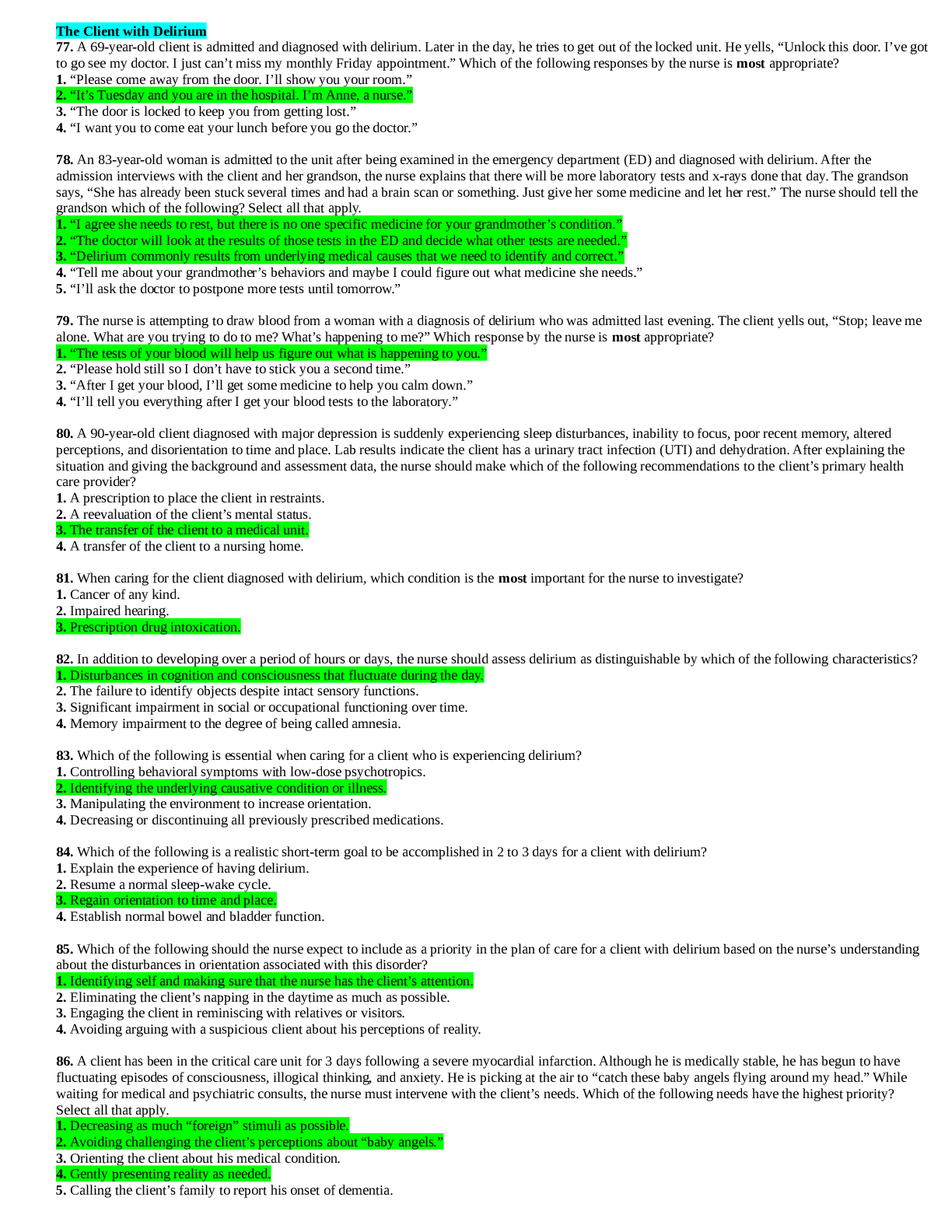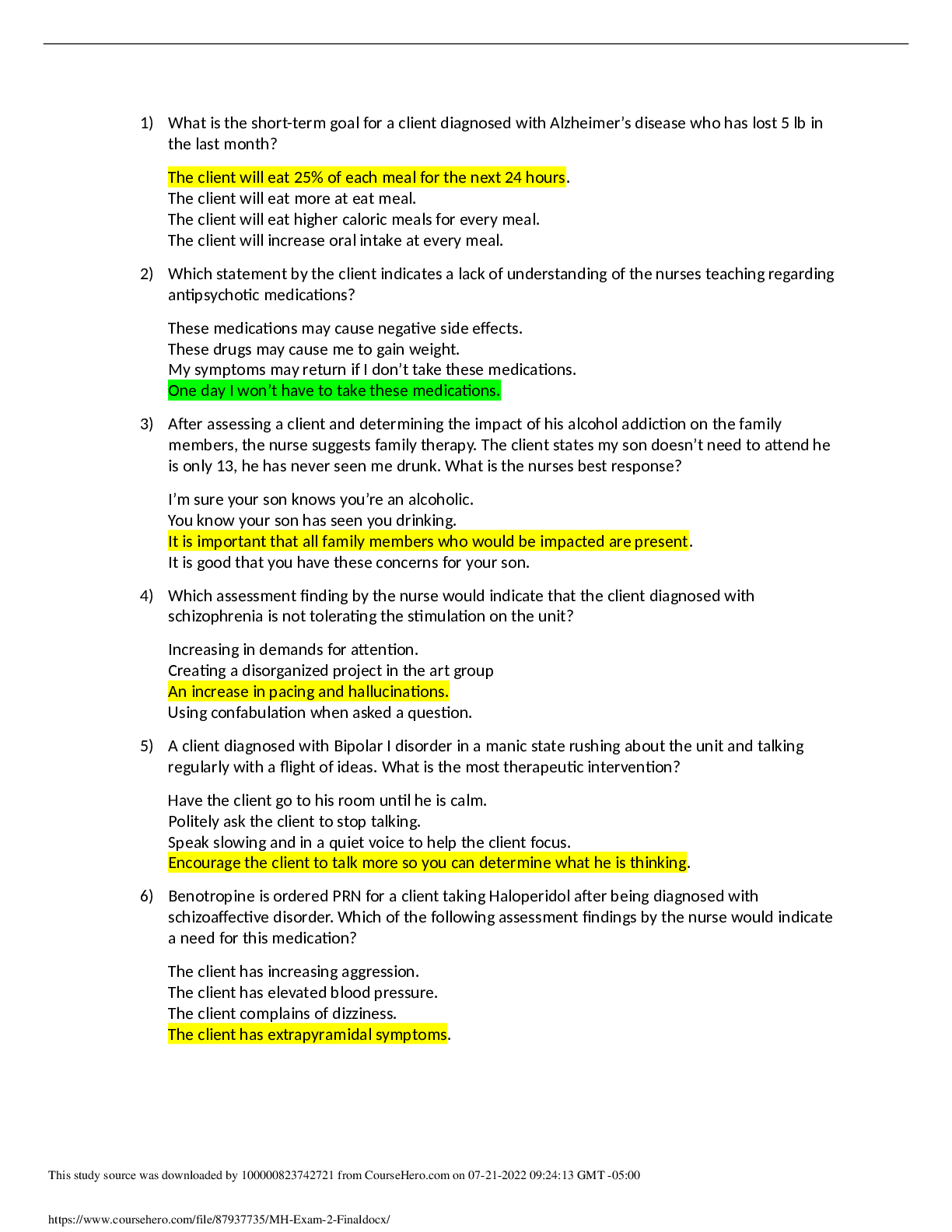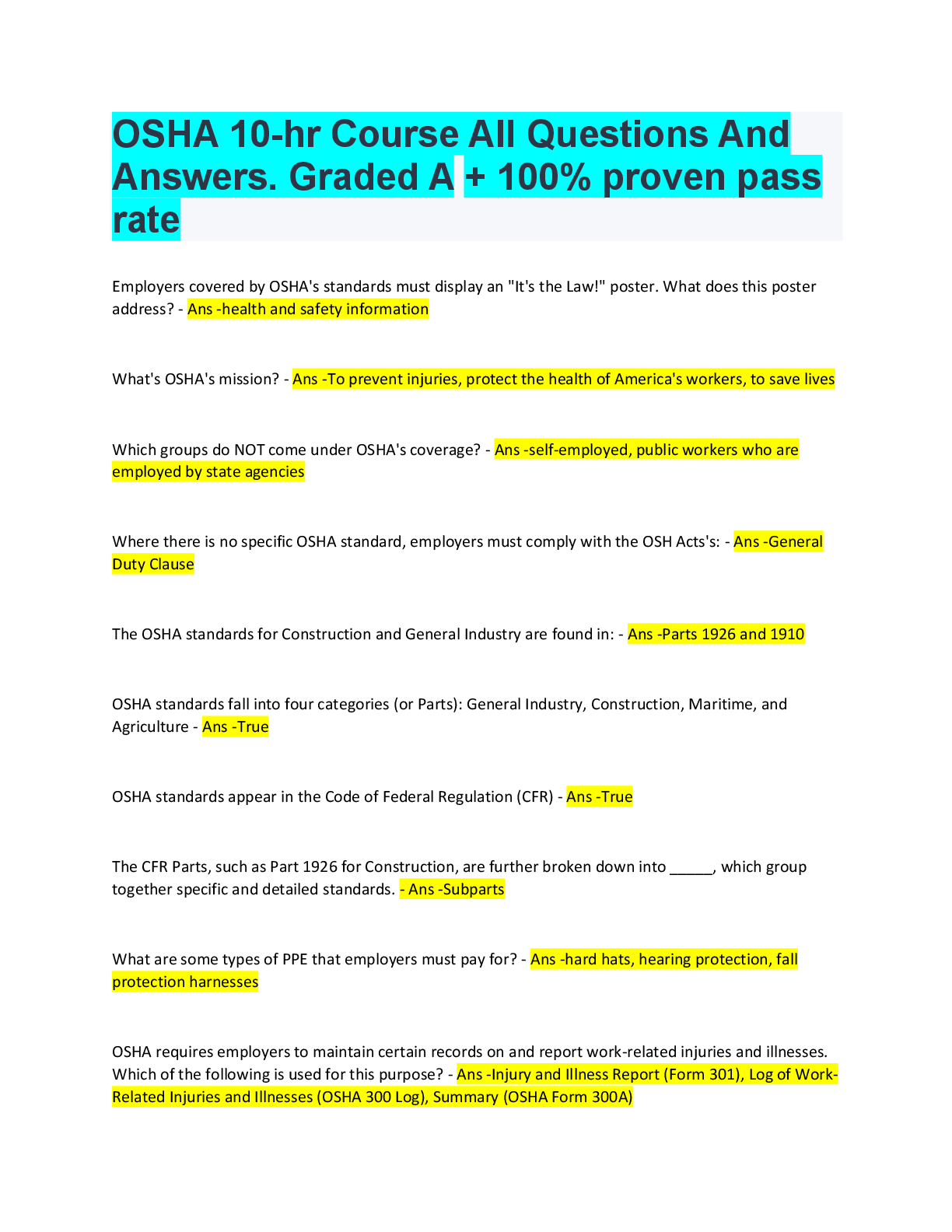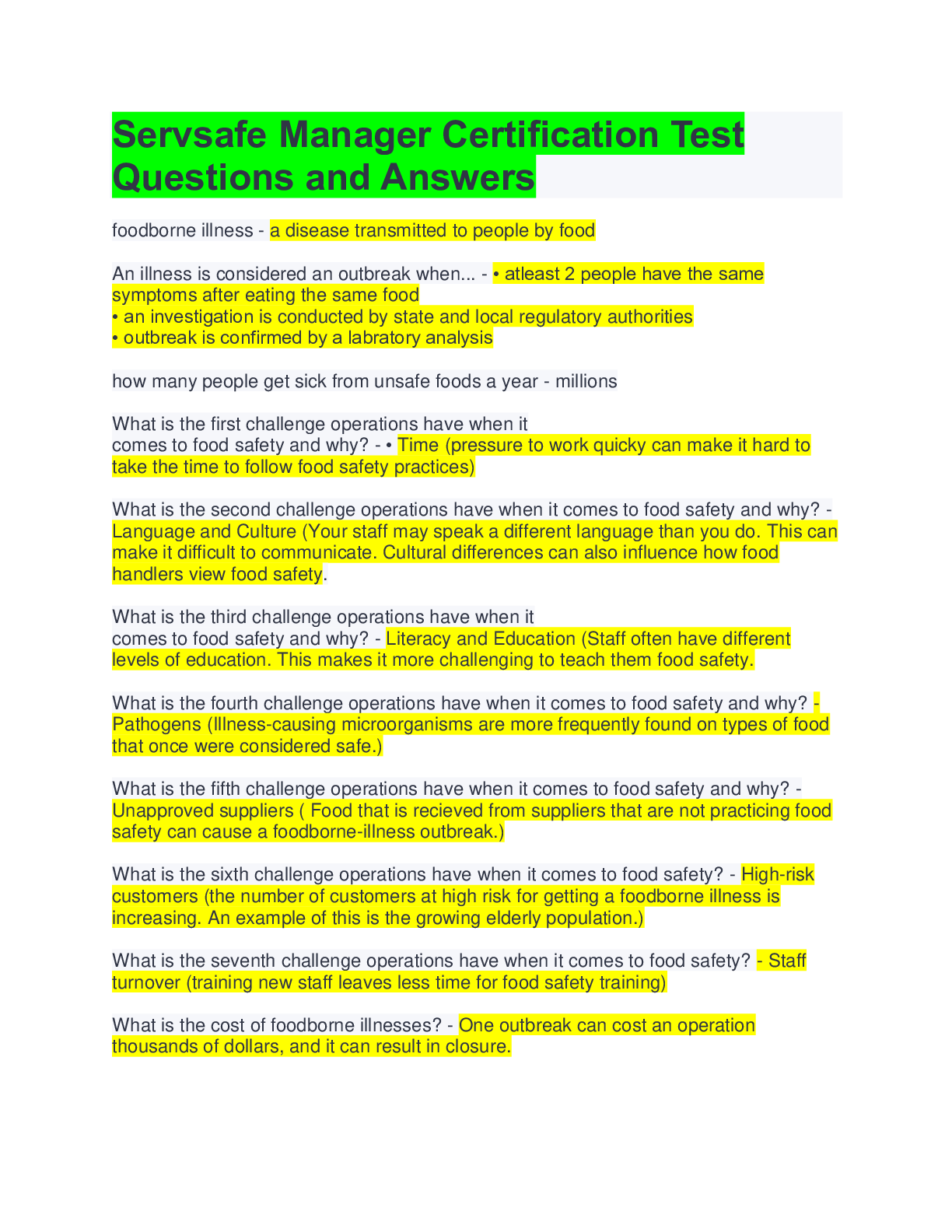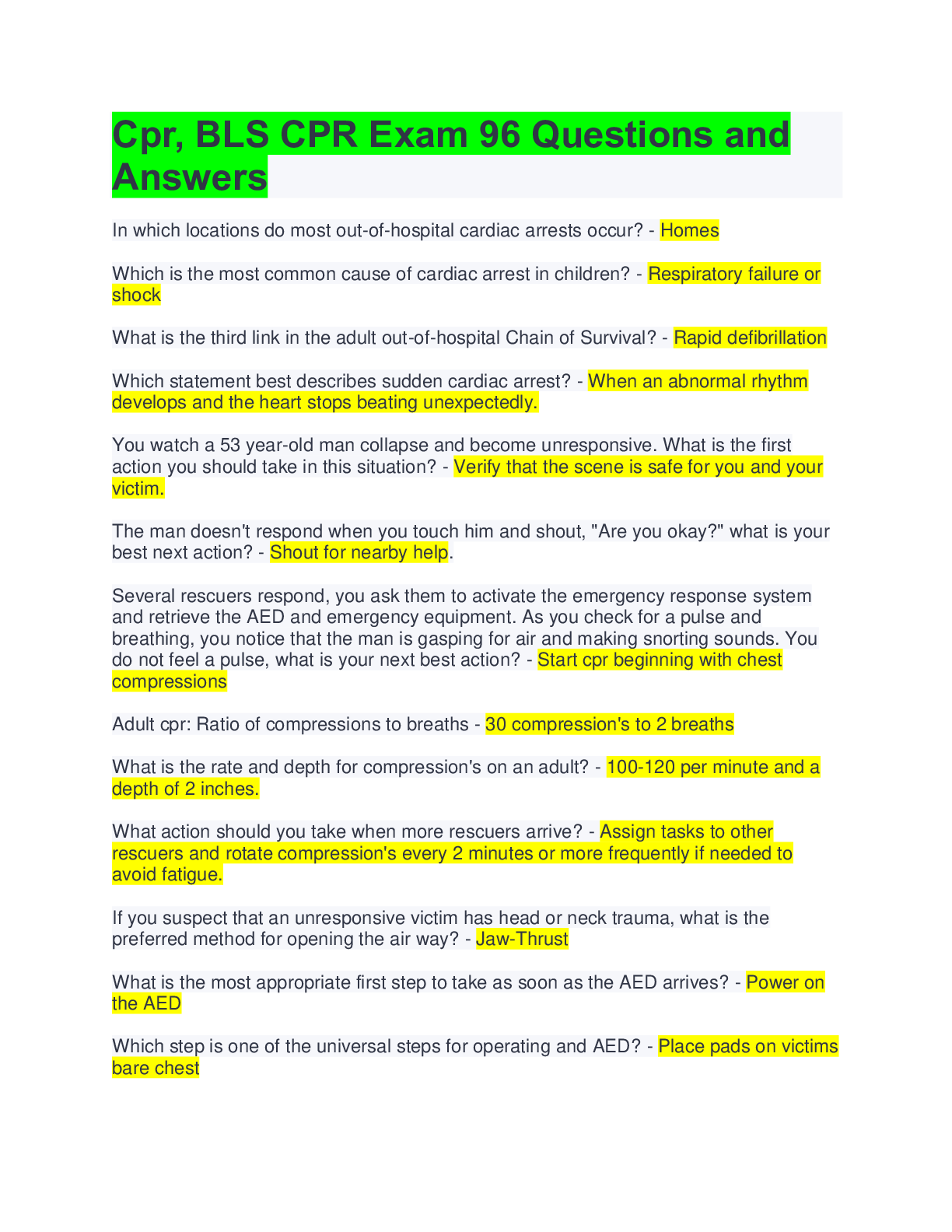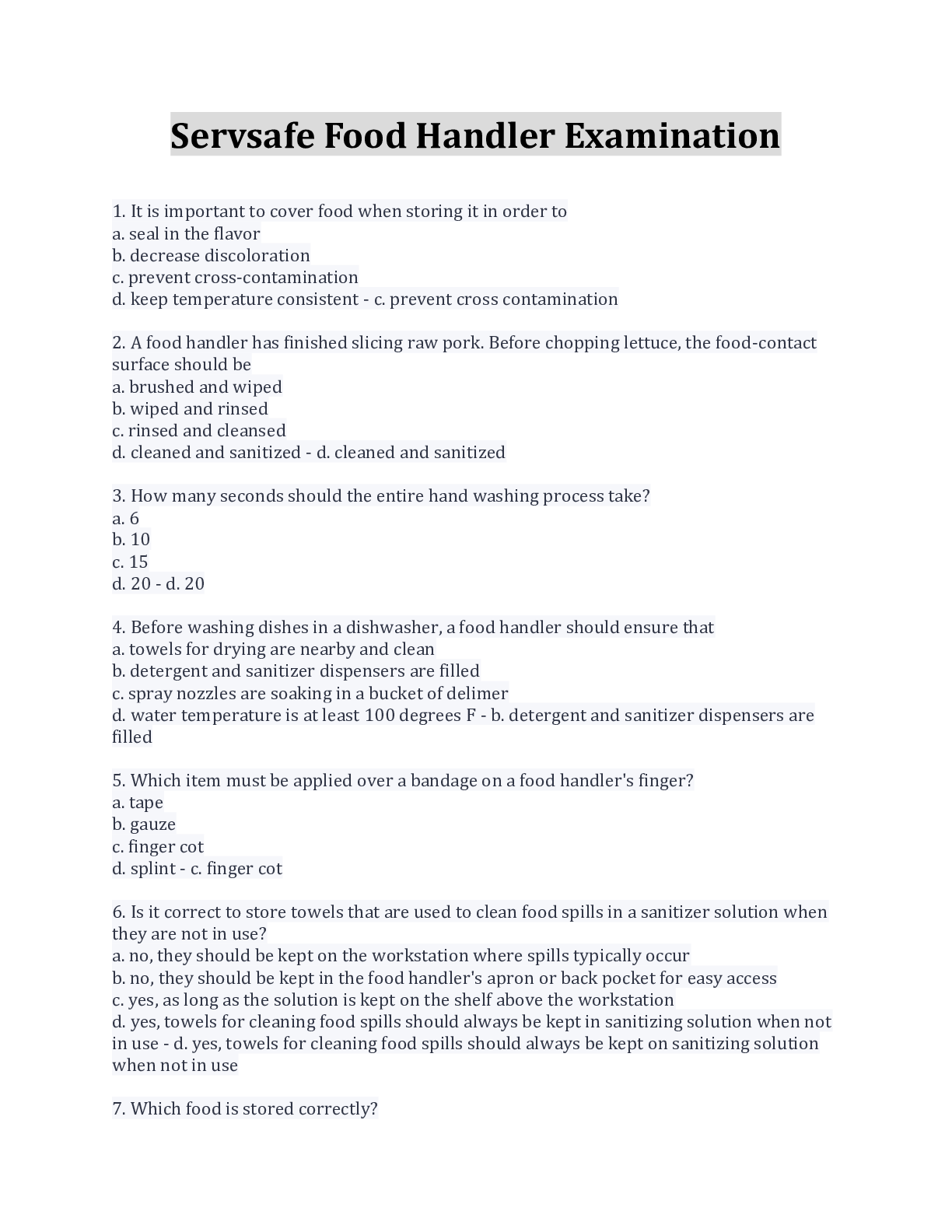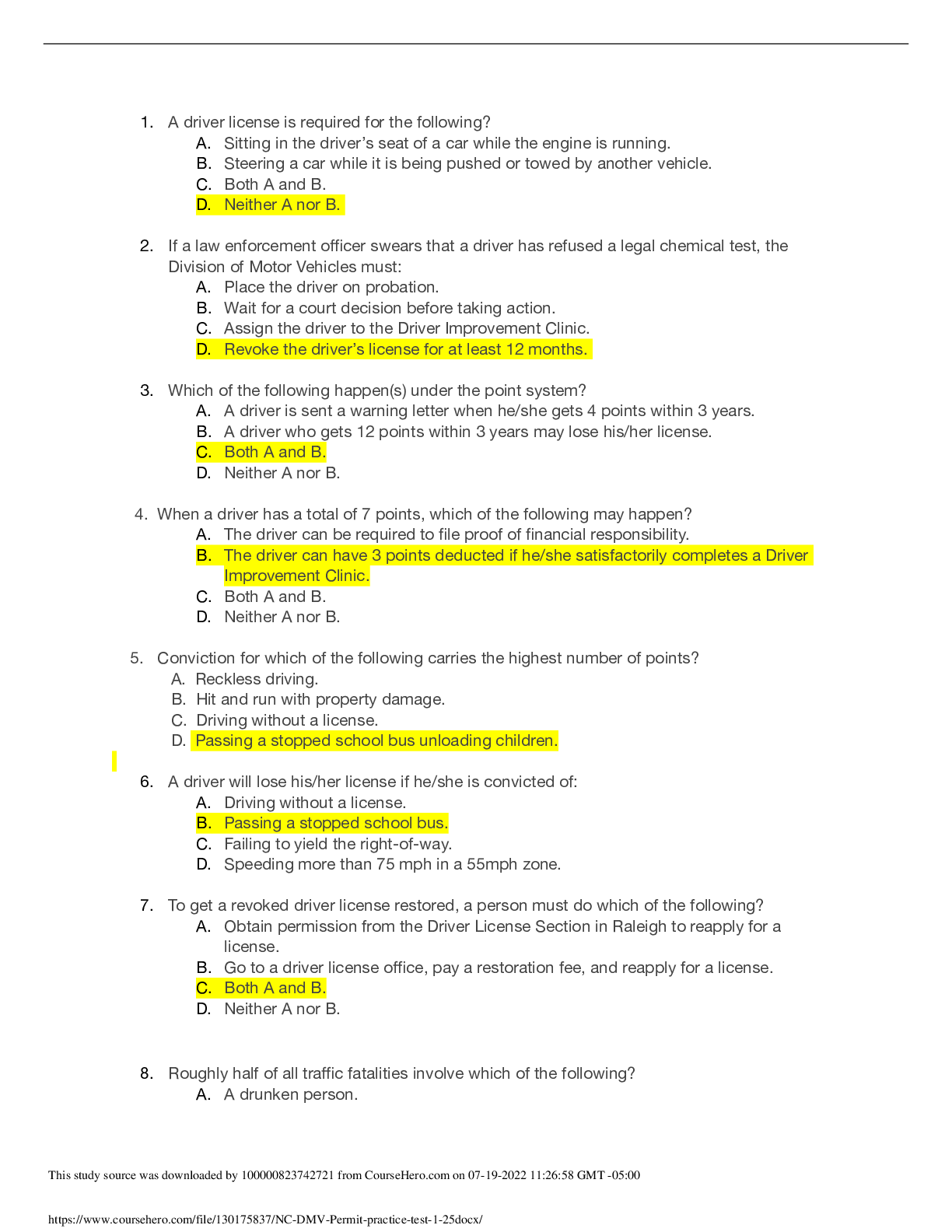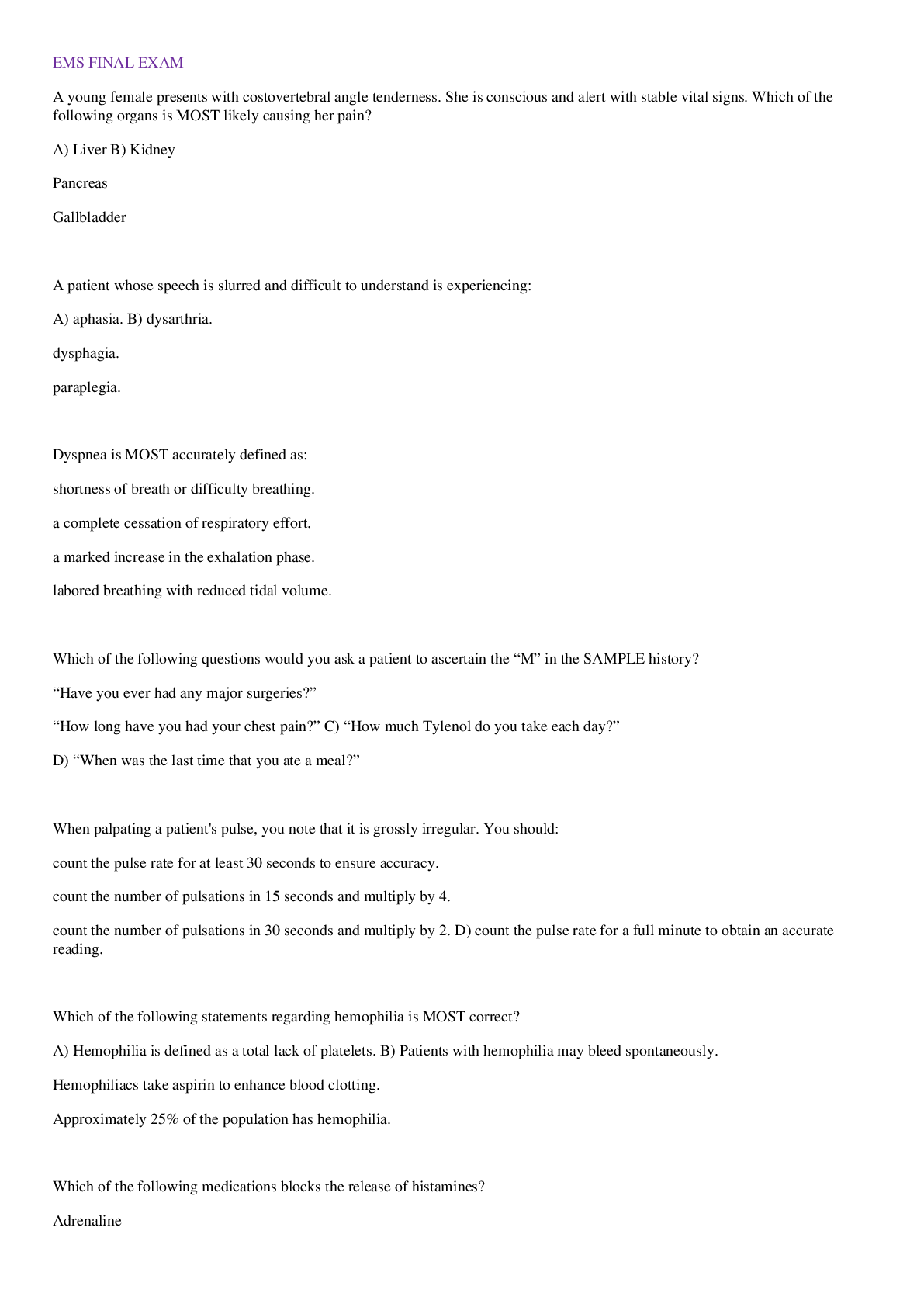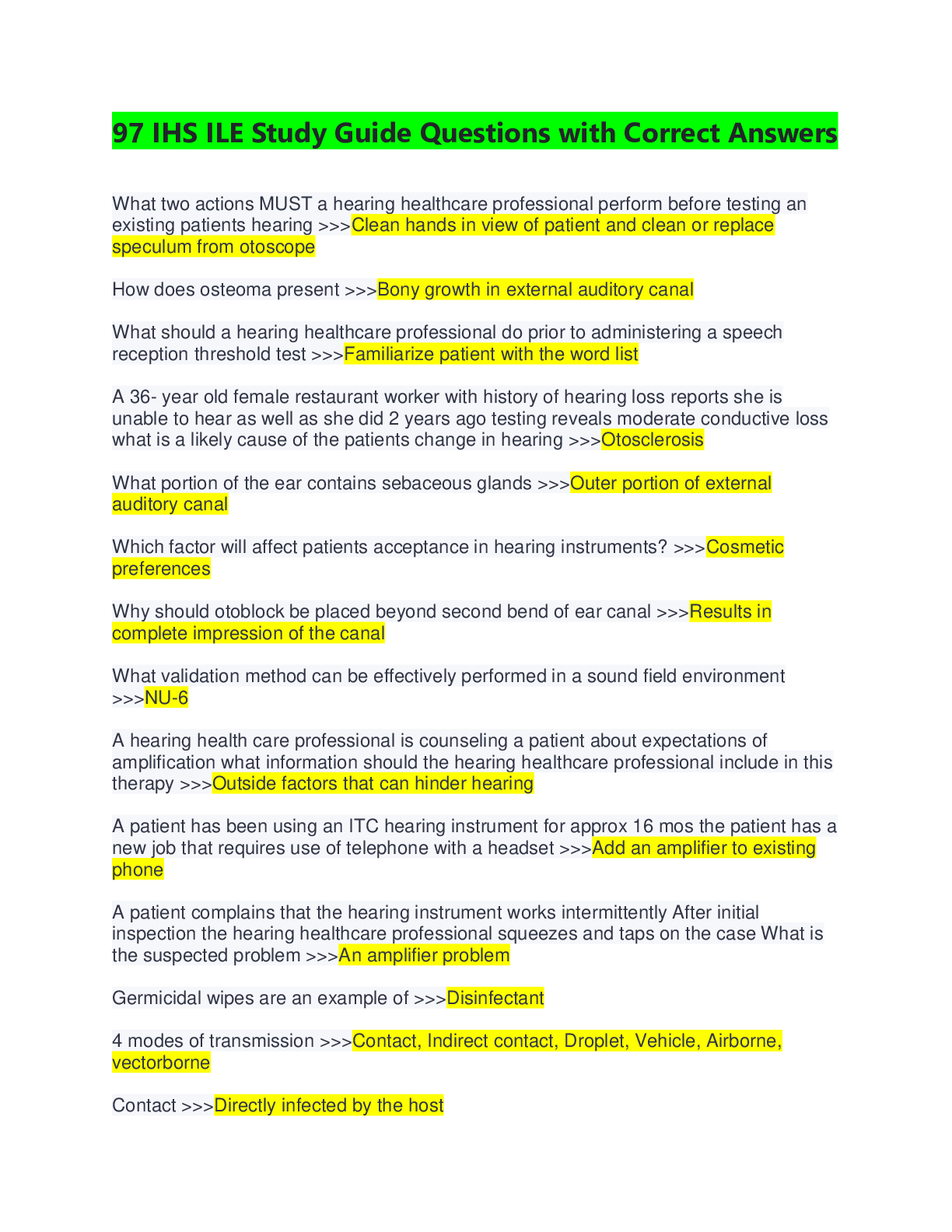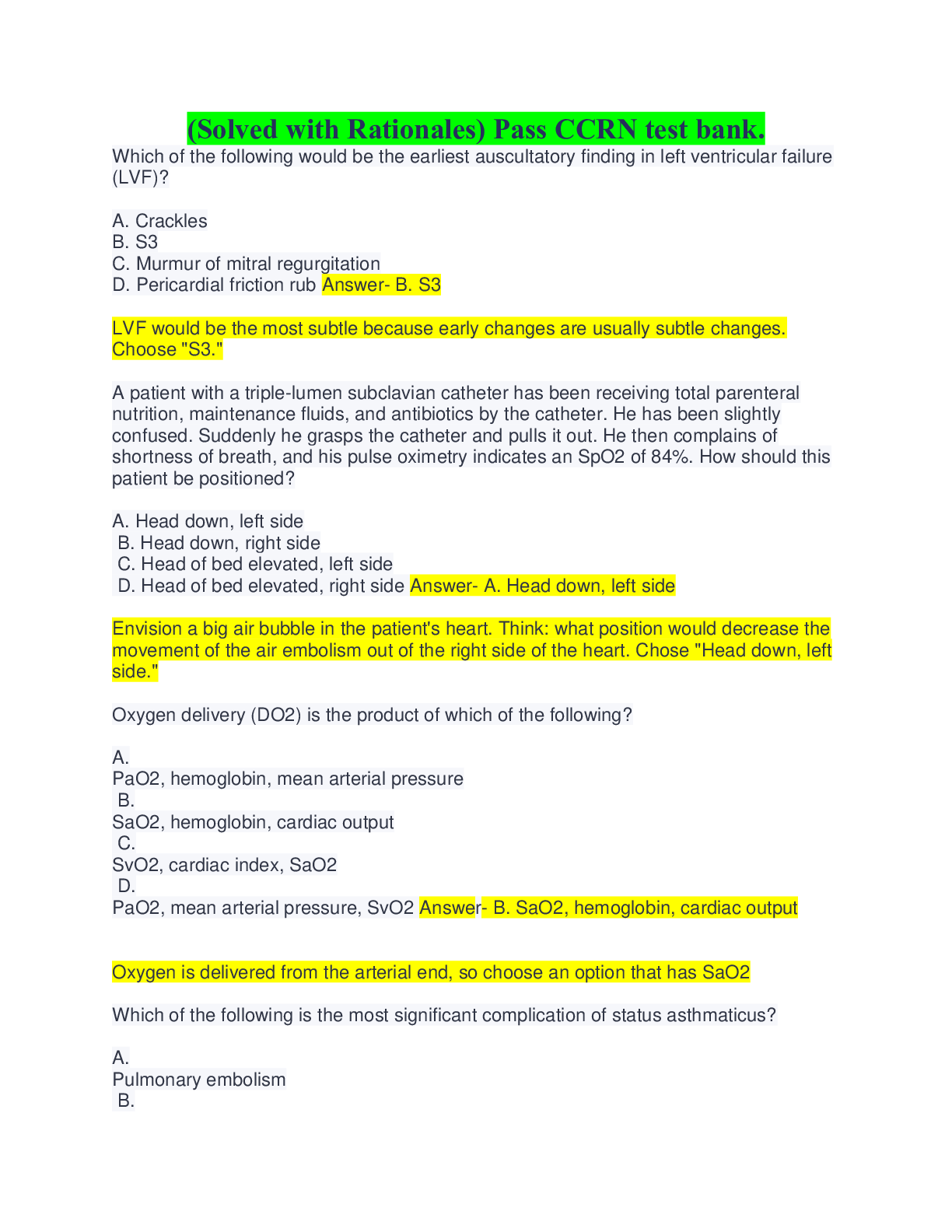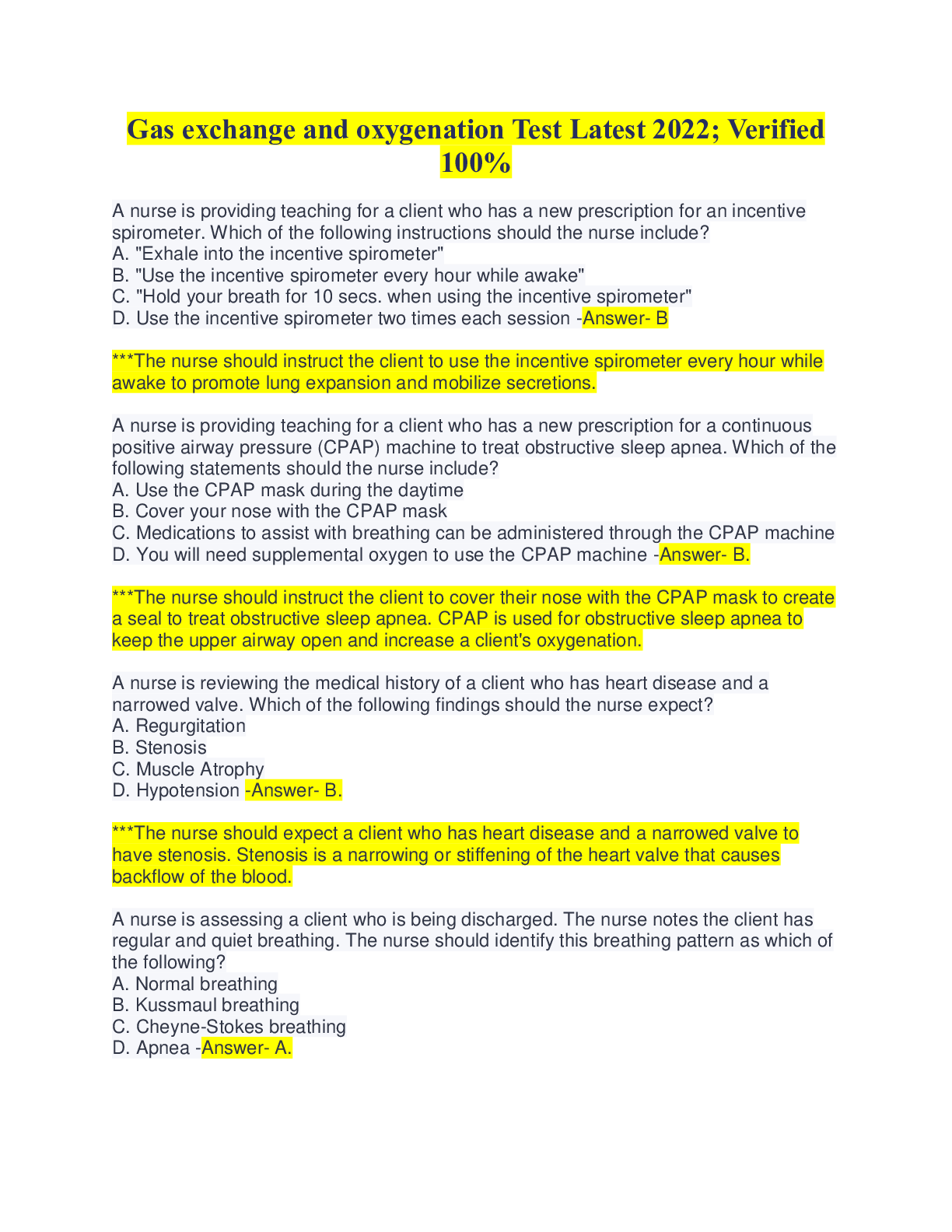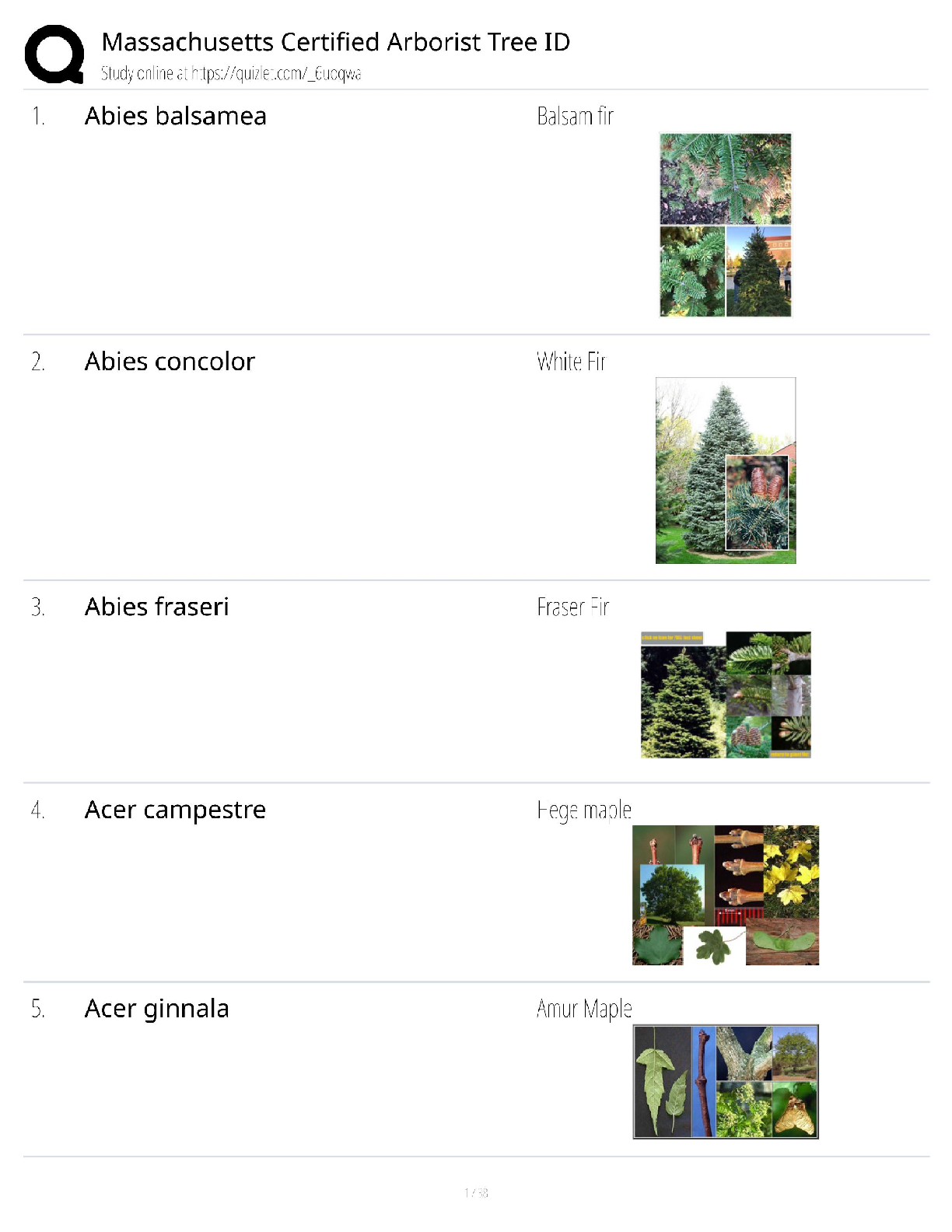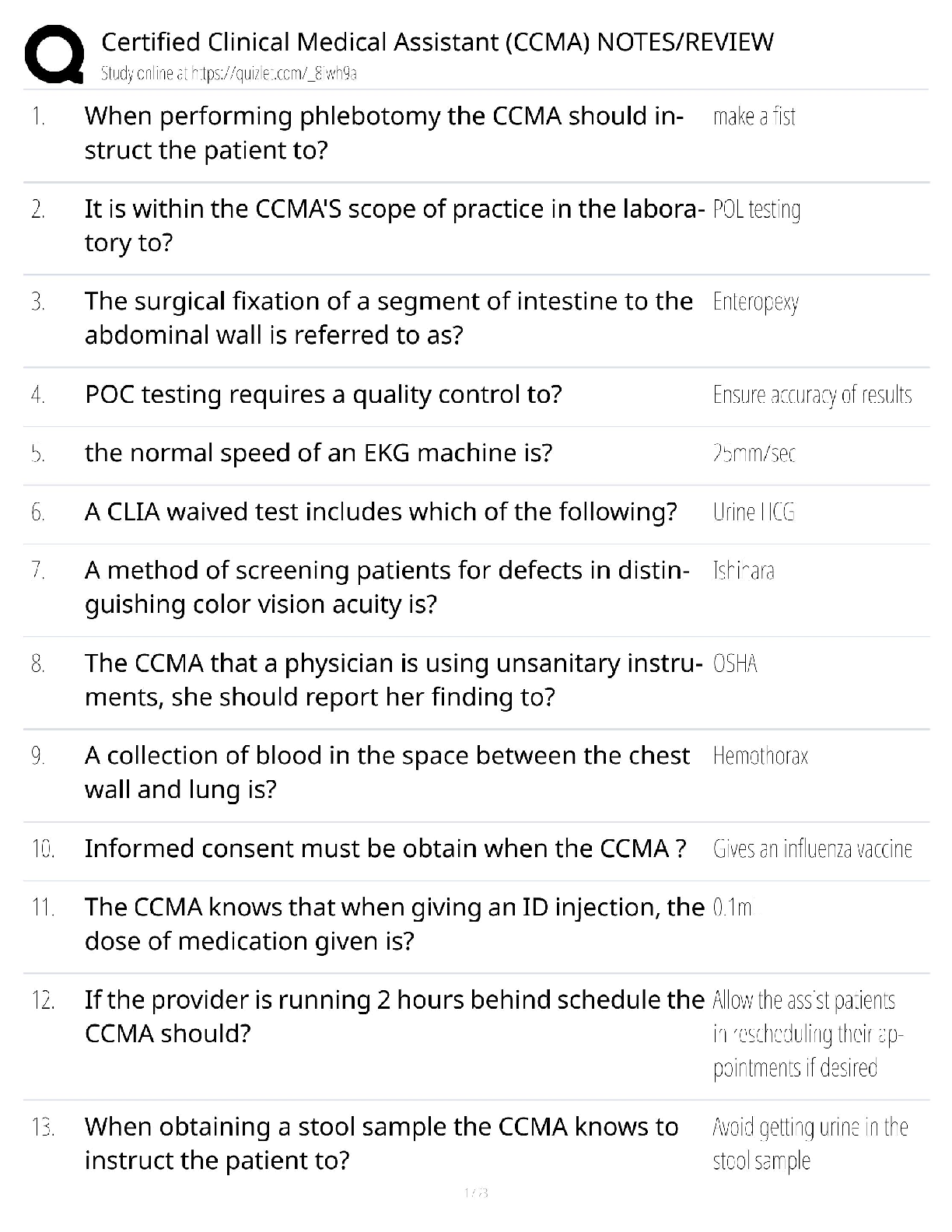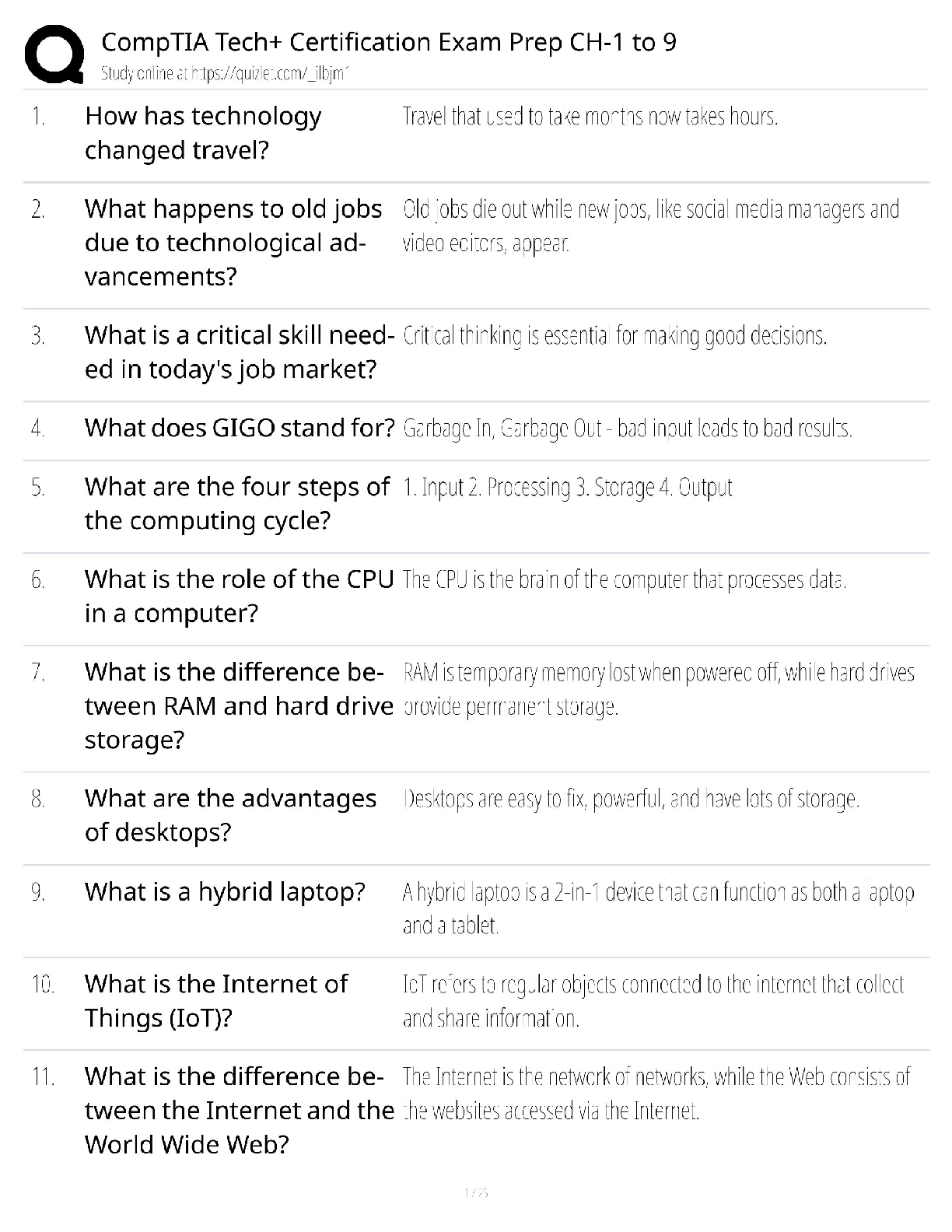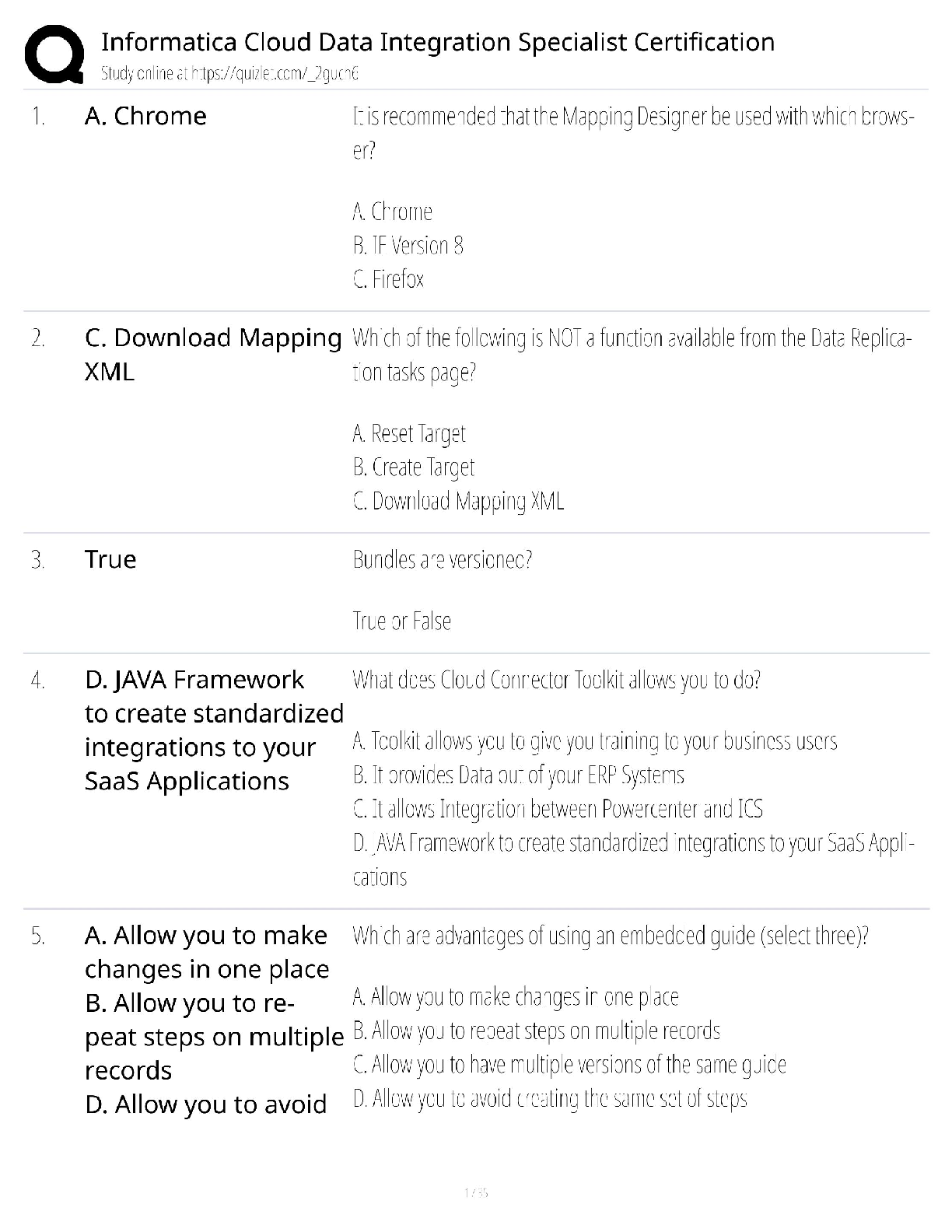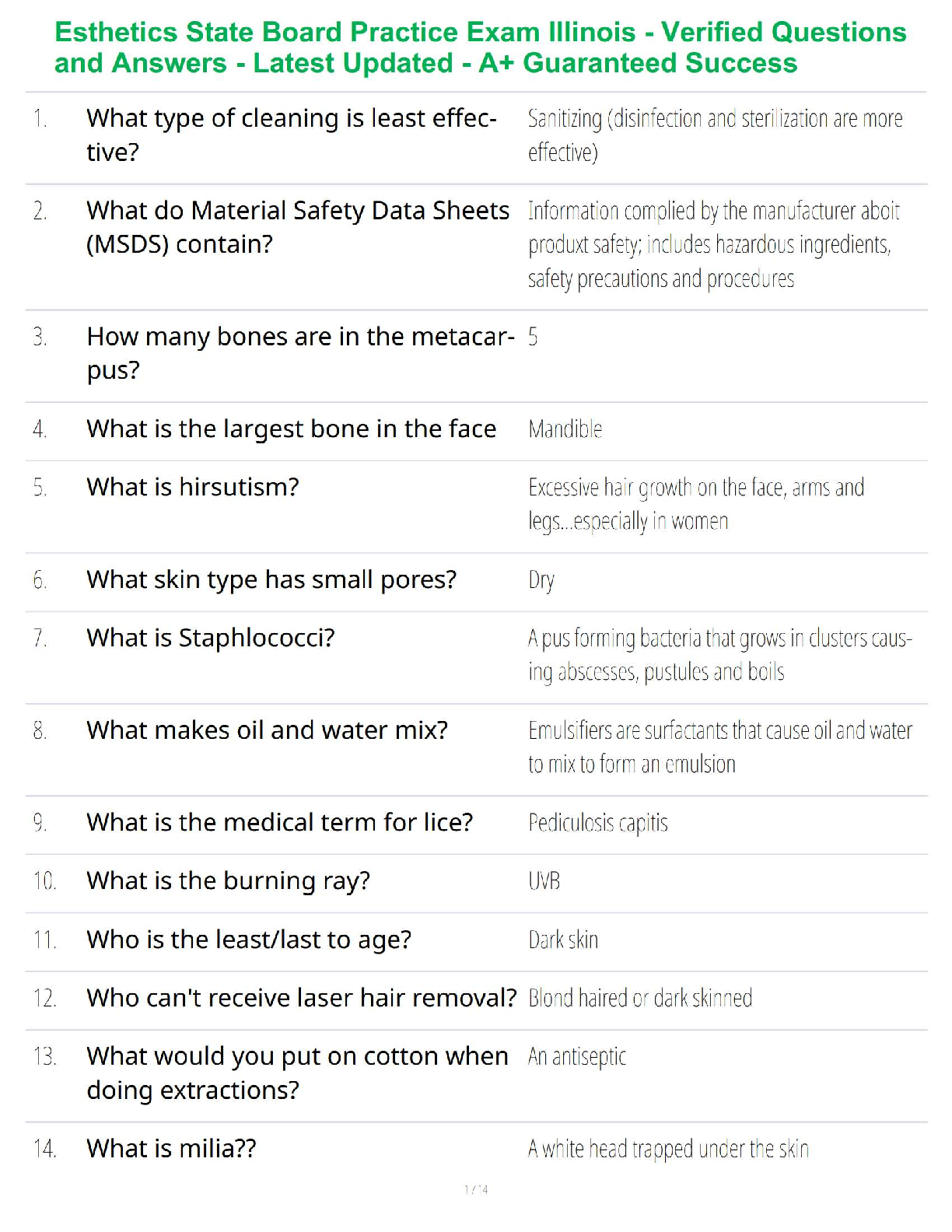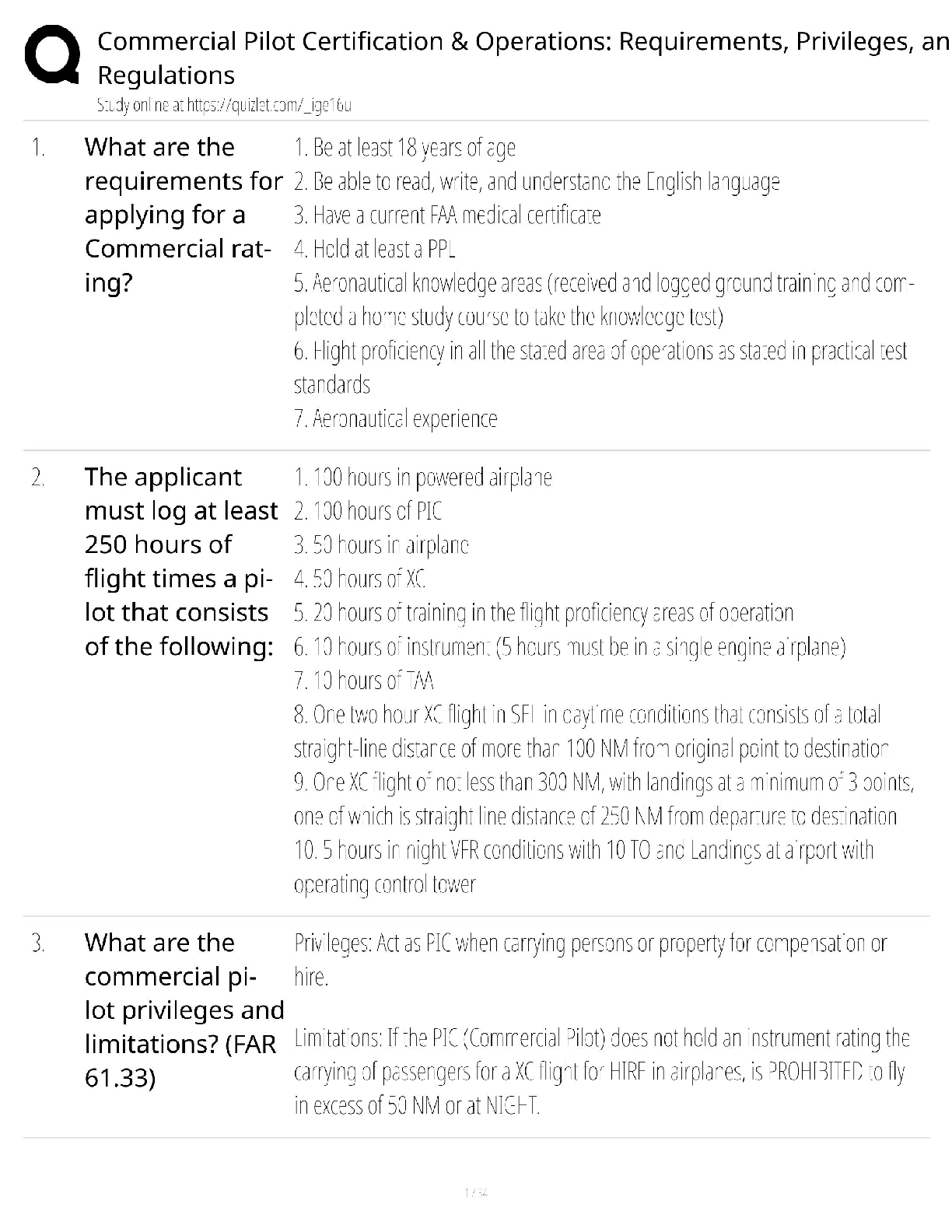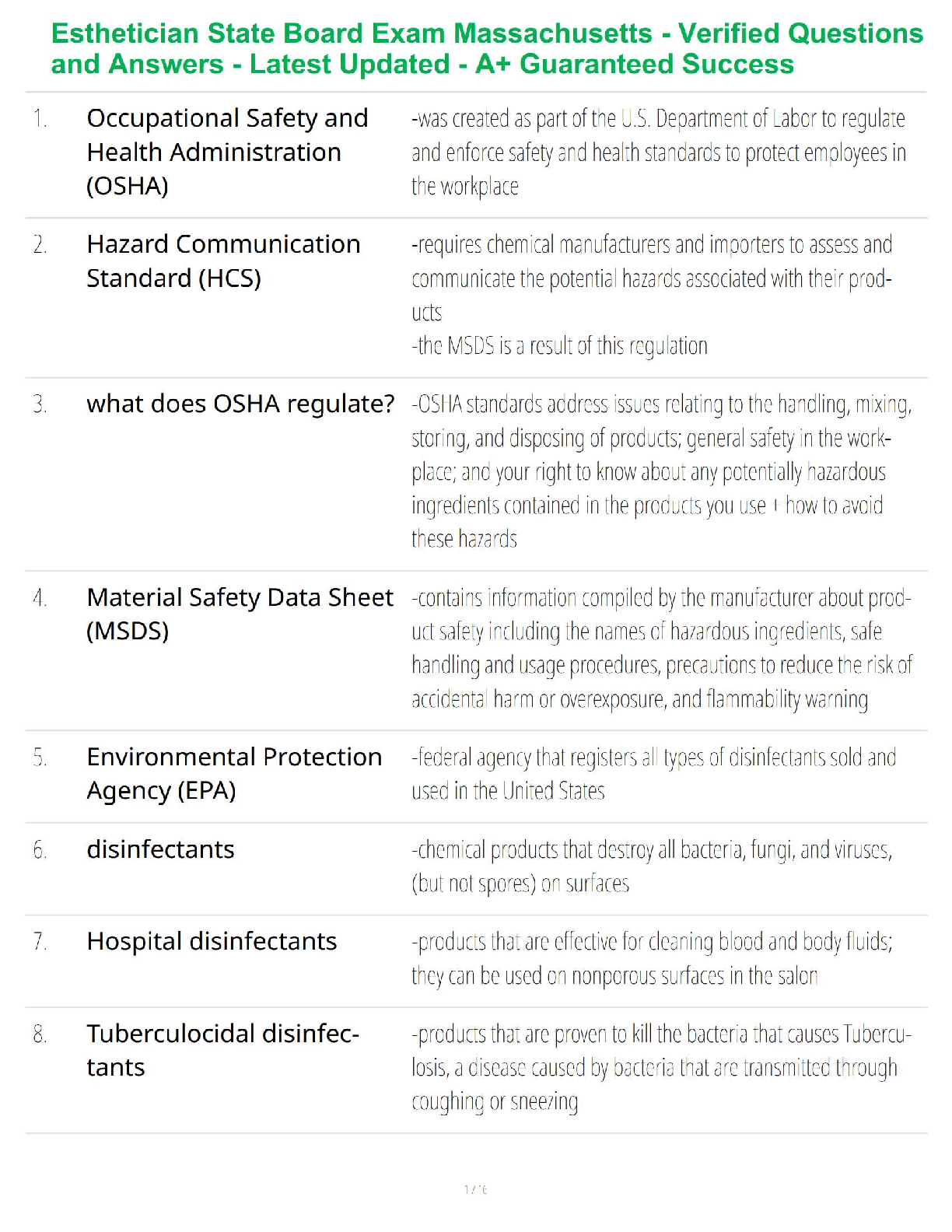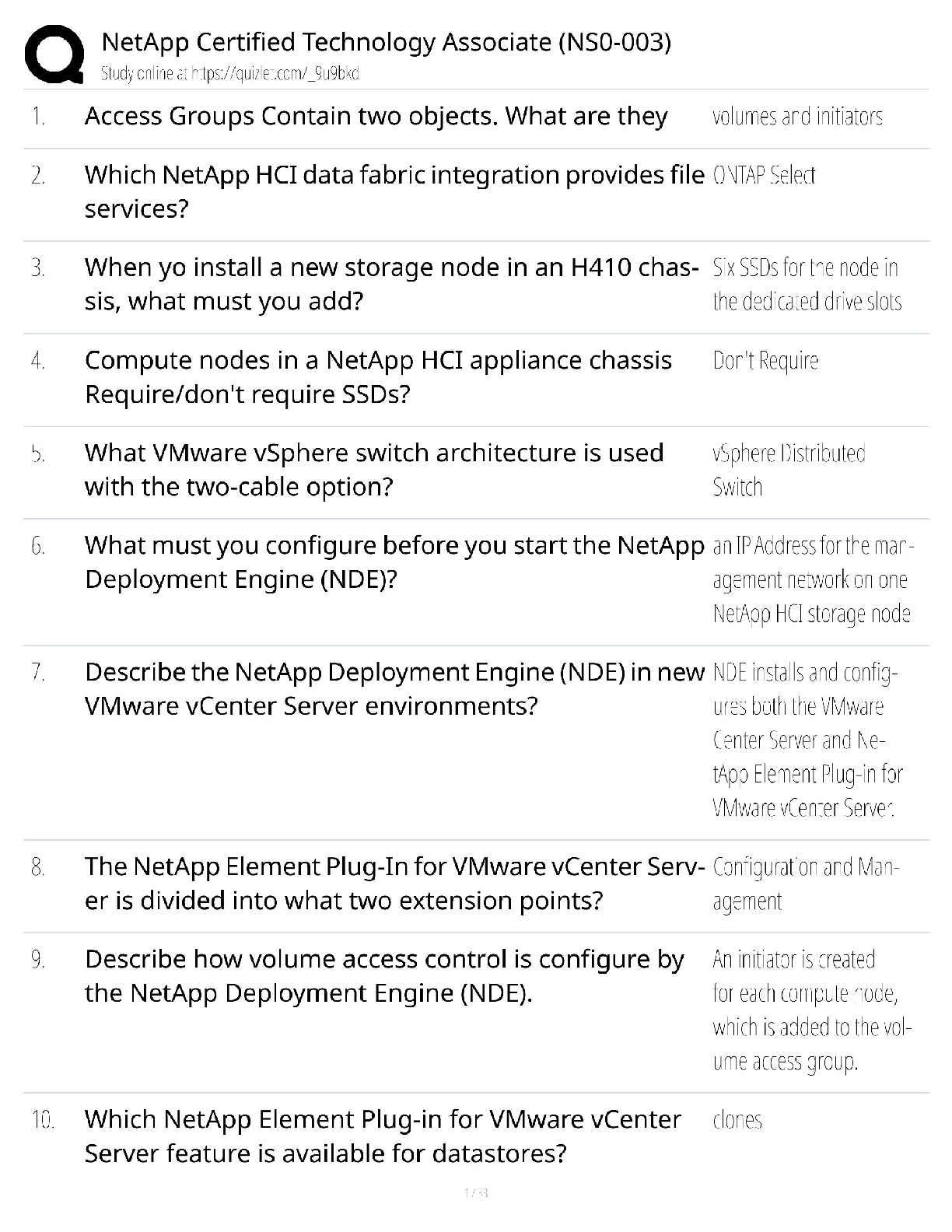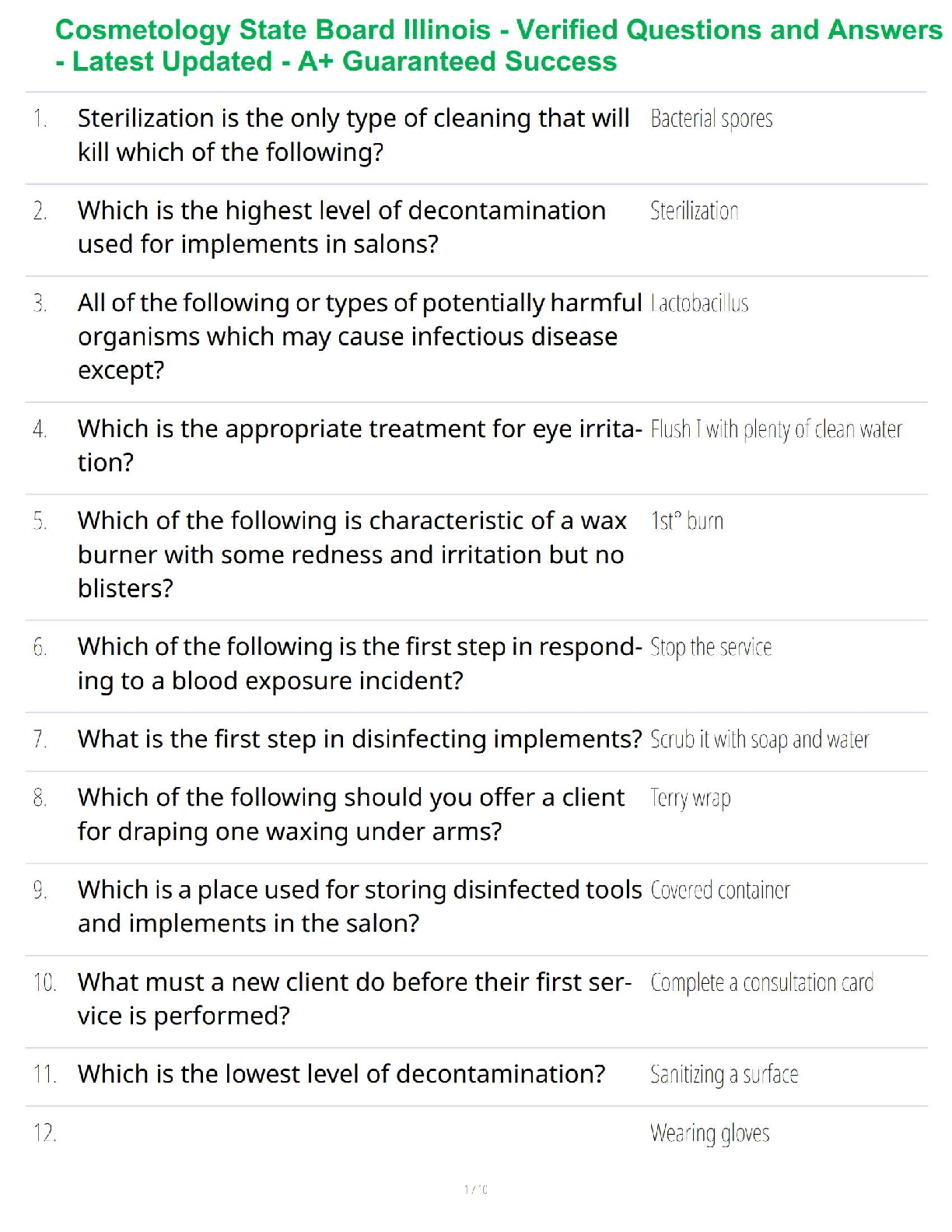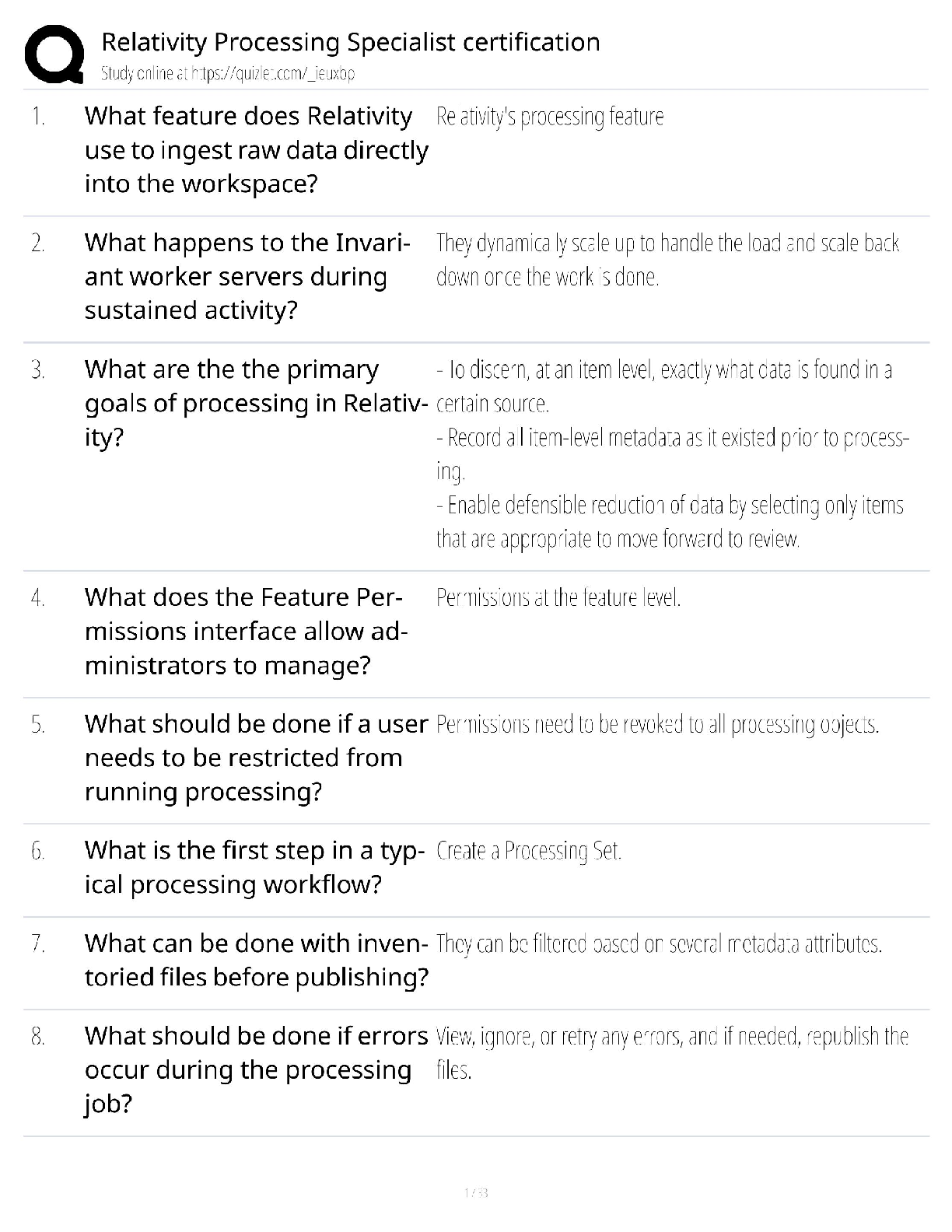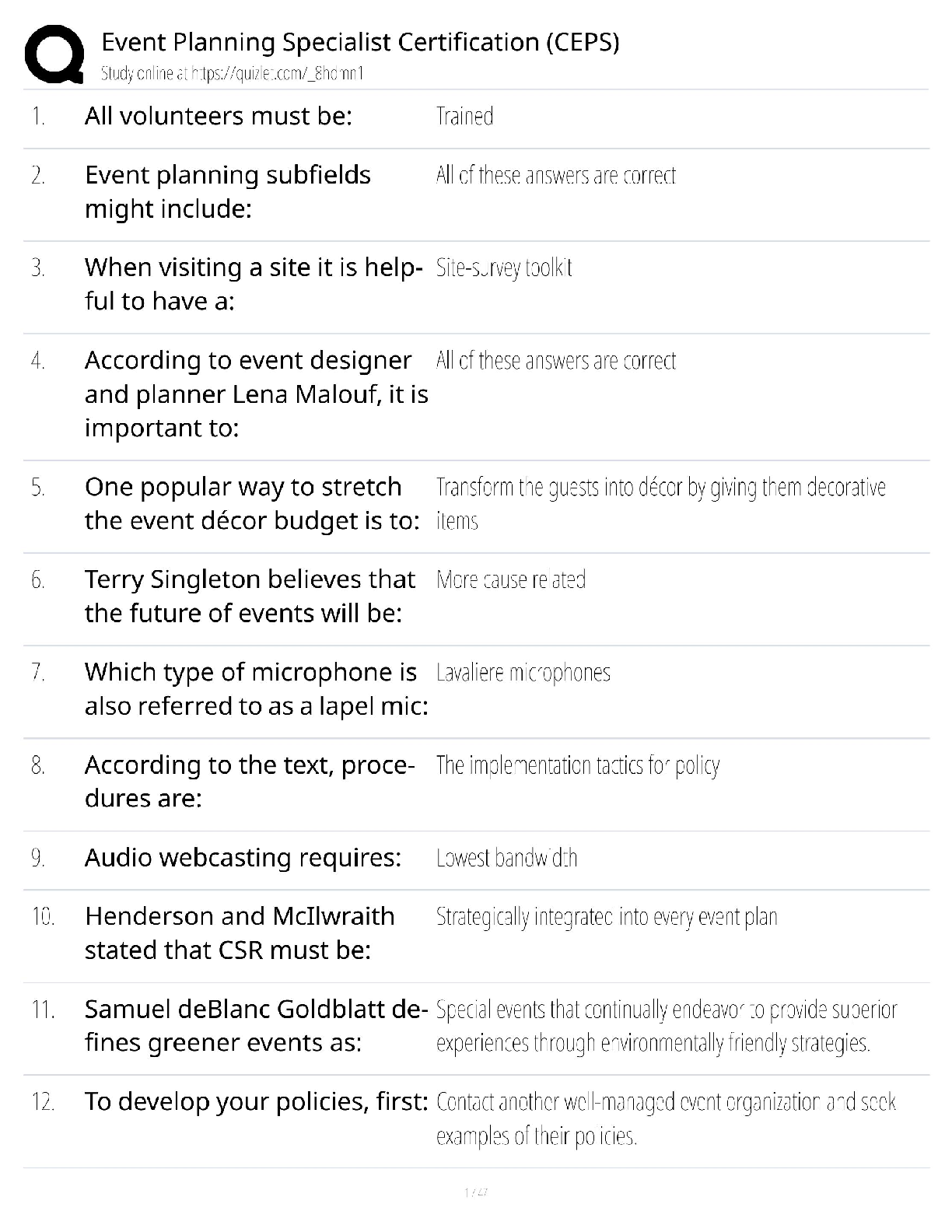The Client with Delirium
77. A 69-year-old client is admitted and diagnosed with delirium. Later in the day, he tries to get out of the locked unit. He yells, “Unlock this door. I’ve got
to go see my doctor. I just can
...
The Client with Delirium
77. A 69-year-old client is admitted and diagnosed with delirium. Later in the day, he tries to get out of the locked unit. He yells, “Unlock this door. I’ve got
to go see my doctor. I just can’t miss my monthly Friday appointment.” Which of the following responses by the nurse is most appropriate?
1. “Please come away from the door. I’ll show you your room.”
2. “It’s Tuesday and you are in the hospital. I’m Anne, a nurse.”
3. “The door is locked to keep you from getting lost.”
4. “I want you to come eat your lunch before you go the doctor.”
78. An 83-year-old woman is admitted to the unit after being examined in the emergency department (ED) and diagnosed with delirium. After the
admission interviews with the client and her grandson, the nurse explains that there will be more laboratory tests and x-rays done that day. The grandson
says, “She has already been stuck several times and had a brain scan or something. Just give her some medicine and let her rest.” The nurse should tell the
grandson which of the following? Select all that apply.
1. “I agree she needs to rest, but there is no one specific medicine for your grandmother’s condition.”
2. “The doctor will look at the results of those tests in the ED and decide what other tests are needed.”
3. “Delirium commonly results from underlying medical causes that we need to identify and correct.”
4. “Tell me about your grandmother’s behaviors and maybe I could figure out what medicine she needs.”
5. “I’ll ask the doctor to postpone more tests until tomorrow.”
79. The nurse is attempting to draw blood from a woman with a diagnosis of delirium who was admitted last evening. The client yells out, “Stop; leave me
alone. What are you trying to do to me? What’s happening to me?” Which response by the nurse is most appropriate?
1. “The tests of your blood will help us figure out what is happening to you.”
2. “Please hold still so I don’t have to stick you a second time.”
3. “After I get your blood, I’ll get some medicine to help you calm down.”
4. “I’ll tell you everything after I get your blood tests to the laboratory.”
80. A 90-year-old client diagnosed with major depression is suddenly experiencing sleep disturbances, inability to focus, poor recent memory, altered
perceptions, and disorientation to time and place. Lab results indicate the client has a urinary tract infection (UTI) and dehydration. After explaining the
situation and giving the background and assessment data, the nurse should make which of the following recommendations to the client’s primary health
care provider?
1. A prescription to place the client in restraints.
2. A reevaluation of the client’s mental status.
3. The transfer of the client to a medical unit.
4. A transfer of the client to a nursing home.
81. When caring for the client diagnosed with delirium, which condition is the most important for the nurse to investigate?
1. Cancer of any kind.
2. Impaired hearing.
3. Prescription drug intoxication.
82. In addition to developing over a period of hours or days, the nurse should assess delirium as distinguishable by which of the following characteristics?
1. Disturbances in cognition and consciousness that fluctuate during the day.
2. The failure to identify objects despite intact sensory functions.
3. Significant impairment in social or occupational functioning over time.
4. Memory impairment to the degree of being called amnesia.
83. Which of the following is essential when caring for a client who is experiencing delirium?
1. Controlling behavioral symptoms with low-dose psychotropics.
2. Identifying the underlying causative condition or illness.
3. Manipulating the environment to increase orientation.
4. Decreasing or discontinuing all previously prescribed medications.
84. Which of the following is a realistic short-term goal to be accomplished in 2 to 3 days for a client with delirium?
1. Explain the experience of having delirium.
2. Resume a normal sleep-wake cycle.
3. Regain orientation to time and place.
4. Establish normal bowel and bladder function.
85. Which of the following should the nurse expect to include as a priority in the plan of care for a client with delirium based on the nurse’s understanding
about the disturbances in orientation associated with this disorder?
1. Identifying self and making sure that the nurse has the client’s attention.
2. Eliminating the client’s napping in the daytime as much as possible.
3. Engaging the client in reminiscing with relatives or visitors.
4. Avoiding arguing with a suspicious client about his perceptions of reality.
86. A client has been in the critical care unit for 3 days following a severe myocardial infarction. Although he is medically stable, he has begun to have
fluctuating episodes of consciousness, illogical thinking, and anxiety. He is picking at the air to “catch these baby angels flying around my head.” While
waiting for medical and psychiatric consults, the nurse must intervene with the client’s needs. Which of the following needs have the highest priority?
Select all that apply.
1. Decreasing as much “foreign” stimuli as possible.
2. Avoiding challenging the client’s perceptions about “baby angels.”
3. Orienting the client about his medical condition.
4. Gently presenting reality as needed.
5. Calling the client’s family to report his onset of dementia.
The Client with Dementia
85. The nurse is assessing an older adult for signs of dementia using the Mini Mental Status Exam. The nurse gives the client three words to remember:
“cat,” “crackers,” and “toys.” After having the client perform a short task, the nurse asks the client to repeat the words. The client says “toys,” “boys,” and
“joys.” The nurse should next:
1. ask the client to repeat the original words one more time.
2. note on the medical record that the client has echolalia.
3. refer the client to a healthcare provider (HCP) for further follow-up.
4. repeat the test when a family member is present.
86. The nurse is caring for a hospitalized client who has a disorder of the amygdala. Which of symptoms can the nurse anticipate that the client will have?
1. impulsive acts of aggression
2. sleep disturbance
3. unable to recognize objects by touch
4. difficulties with speech
87. A client has been admitted to the emergency department. The client’s family tells the nurse that the client has suddenly become lethargic and is “not
making sense.” The client has not had anything to eat or drink for the last hours. The nurse further assesses the client using the Confusion Assessment
Method (CAM). The client’s responses to questions are rambling, and the client is not able to focus clearly to answer the nurse’s questions. Based on these
findings, the nurse should report that the client has:
1. dementia.
2. depression.
3. delirium.
4. dehydration.
88. A nurse on the geropsychiatric unit receives a call from the son of a recently discharged client. He reports that his father just got a prescription for
memantine to take “on top of his donepezil.” The son then asks, “Why does he have to take extra medicines?” The nurse should tell the son:
1. “Maybe the donepezil alone is not improving his dementia fast enough or well enough.”
2. “Memantine and donepezil are commonly used together to slow the progression of dementia.”
3. “Memantine is more effective than donepezil. Your father will be tapered off the donepezil.”
4. “Donepezil has a short half-life, and memantine has a long half-life. They work well together.”
89. An elderly client diagnosed with dementia wanders the halls of the locked nursing unit during the day. To ensure the client’s safety while walking in the
halls, what should the nurse do?
1. Administer PRN haloperidol to decrease the need to walk.
2. Assess the client’s gait for steadiness.
3. Restrain the client in a geriatric chair.
4. Administer PRN lorazepam to provide sedation
[Show More]
